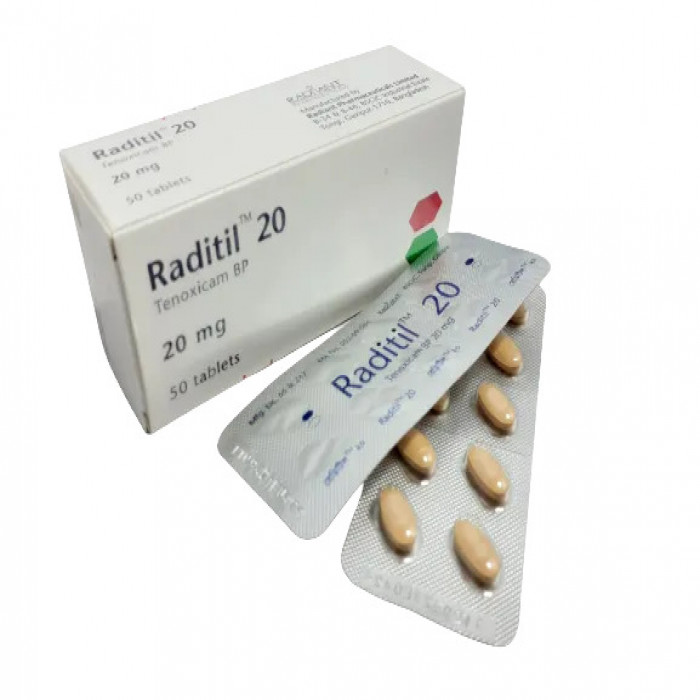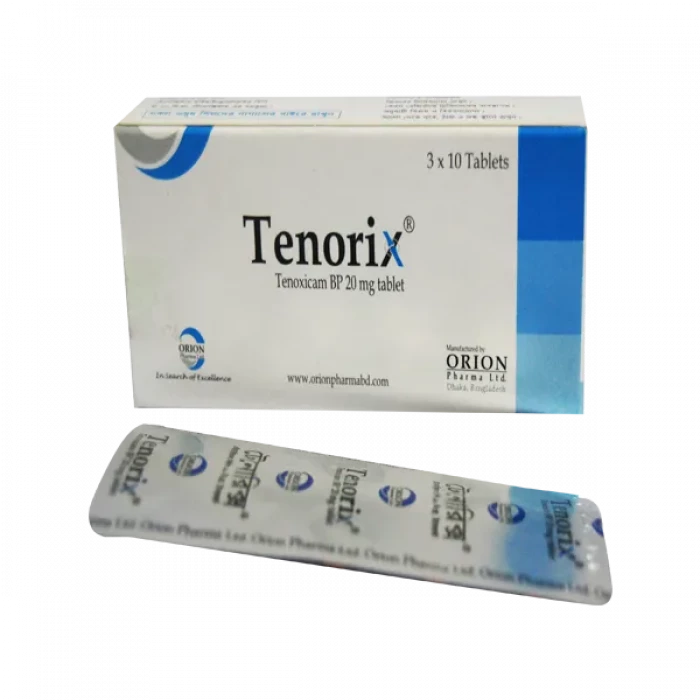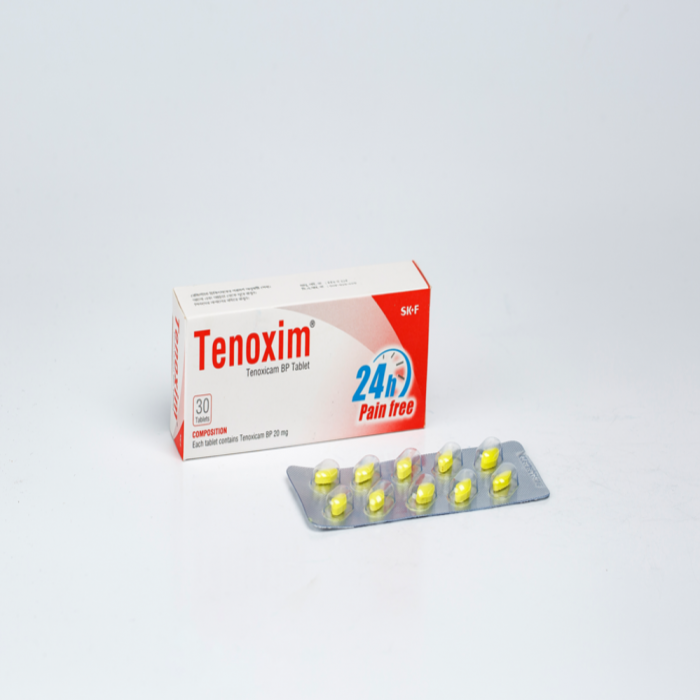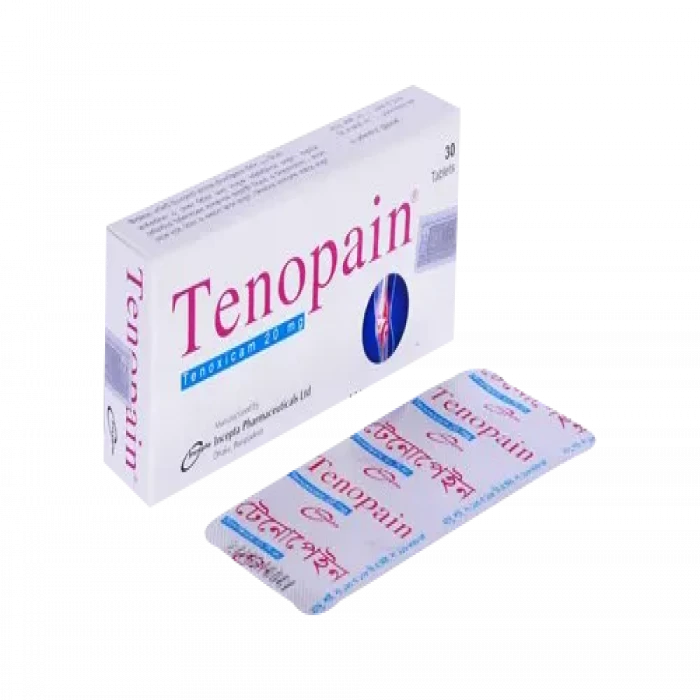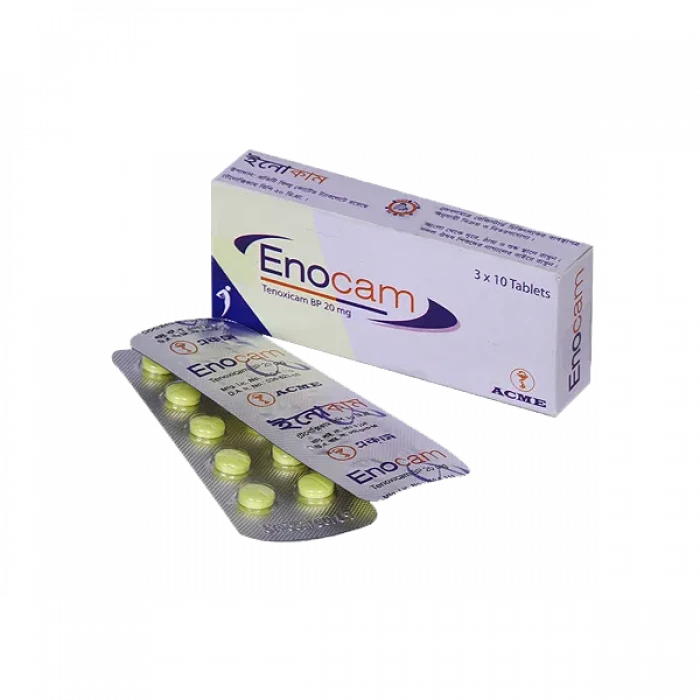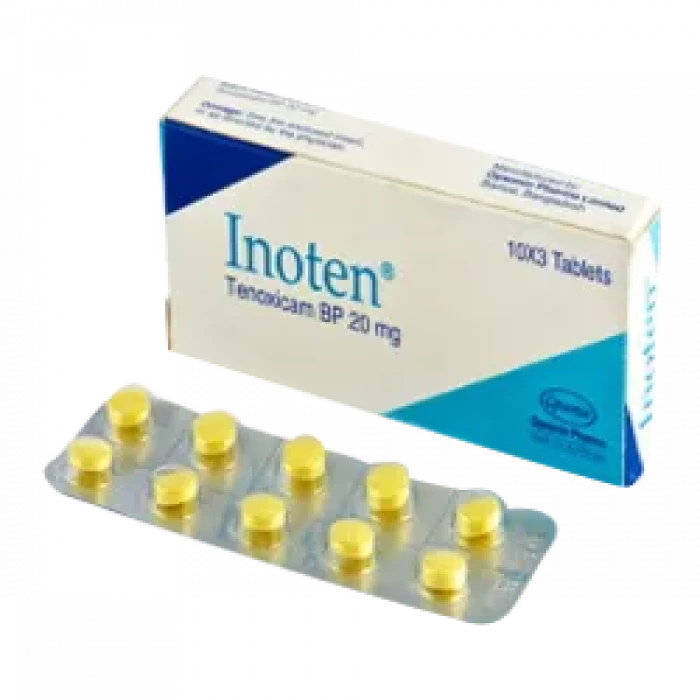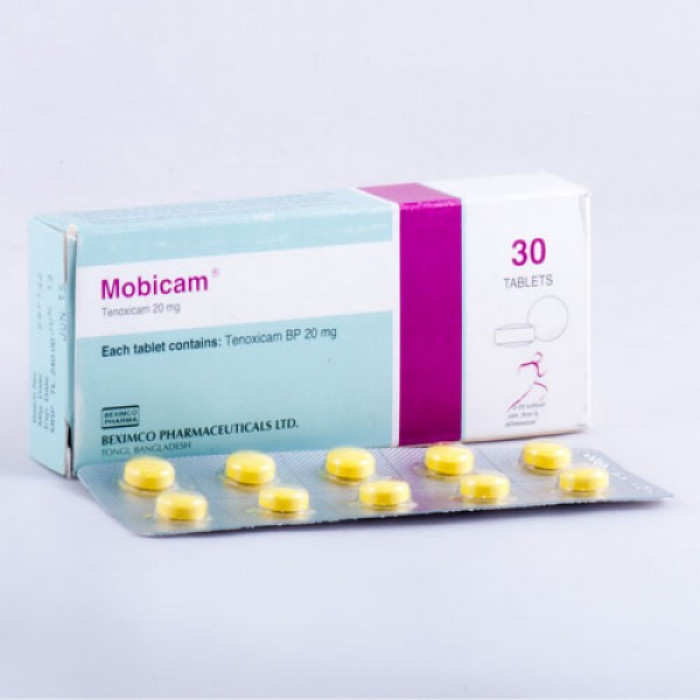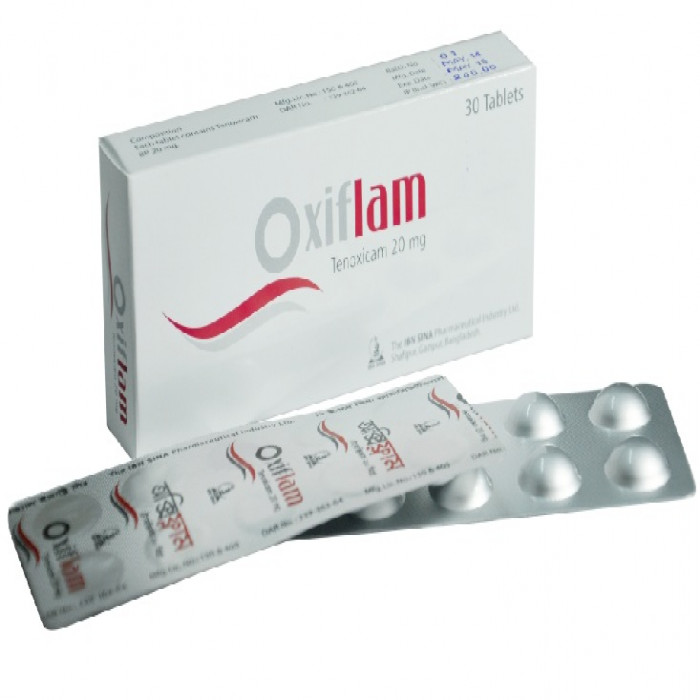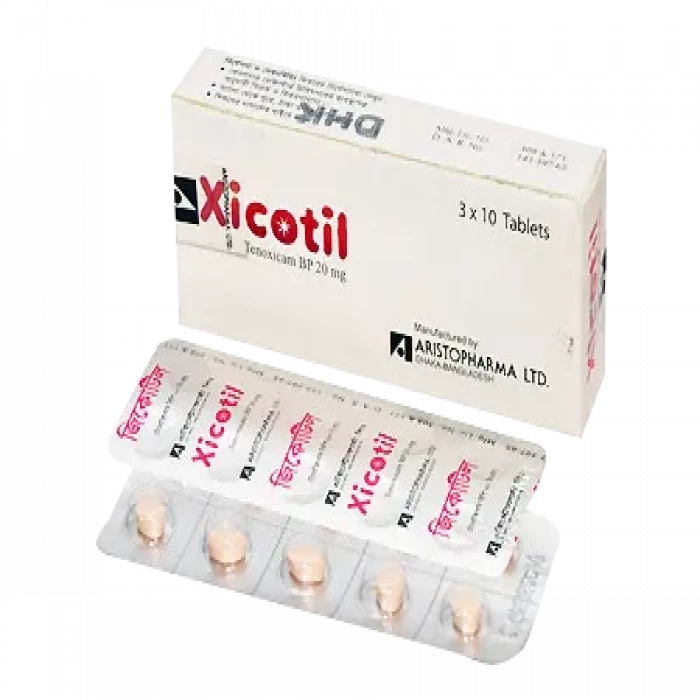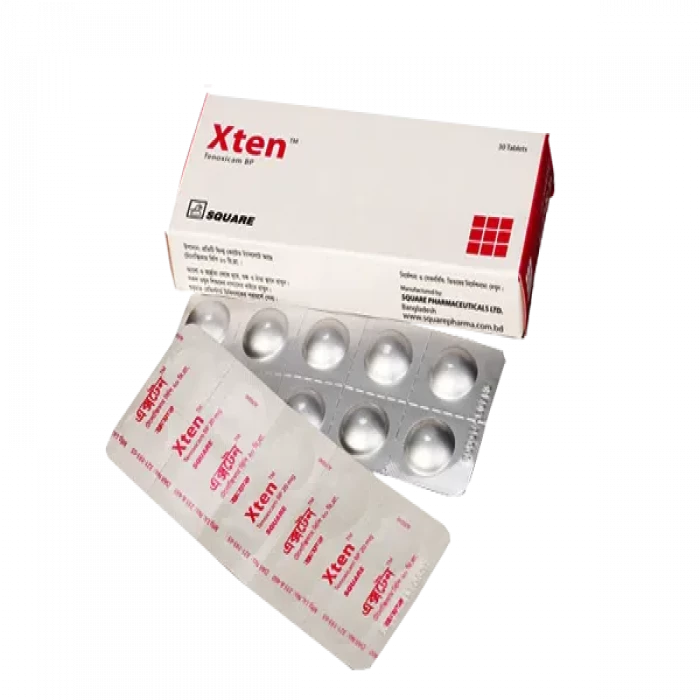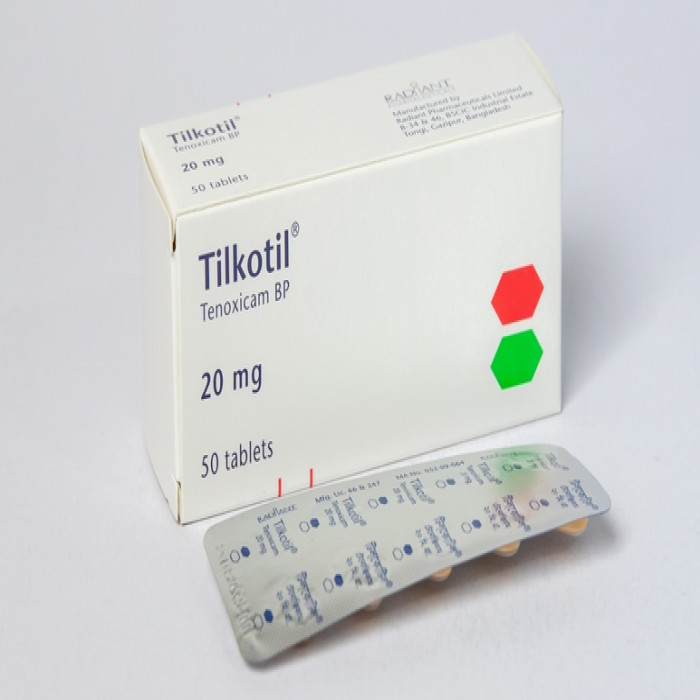
✔ 100% Authentic Product
👁️ Currently Viewing 1577
100% Genuine Products, Guaranteed
Safe & Secure Payments, Always
Fast, Secure & Efficient Delivery
Proper Packaging
 Cash on Delivery - All over Bangladesh
Cash on Delivery - All over Bangladesh Regular Delivery - 12-24 Hours, Dhaka City*
Regular Delivery - 12-24 Hours, Dhaka City* Regular Delivery - 24-48 Hours, All Over Bangladesh*
Regular Delivery - 24-48 Hours, All Over Bangladesh* ফ্রি ডেলিভারিঃ - ৯৯৯ টাকা+ অর্ডারে, ঢাকা
শহরে
ফ্রি ডেলিভারিঃ - ৯৯৯ টাকা+ অর্ডারে, ঢাকা
শহরে ফ্রি ডেলিভারিঃ - ২৯৯৯ টাকা+ অর্ডারে, ঢাকার
বাহিরে
ফ্রি ডেলিভারিঃ - ২৯৯৯ টাকা+ অর্ডারে, ঢাকার
বাহিরে
✅ Description:
Indications
Tenoxicam is used to treat rheumatoid arthritis, osteoarthritis, ankylosing spondylitis, acute gout, and extra-articular inflammations including tendinitis, bursitis, and periarthritis of the shoulders or hips. It is also used to treat musculoskeletal and surgical pain, as well as primary dysmenorrhea.
Pharmacology
Tenoxicam is a nonsteroidal anti-inflammatory medication (NSAID) that has anti-inflammatory, analgesic, and antipyretic effects, as well as the ability to prevent platelet aggregation. Tenoxicam suppresses prostaglandin production and is used to treat inflammatory and degenerative musculoskeletal diseases.
Dosage & Administration
The standard suggested dose for all reasons (excluding primary dysmenorrhea, post-operative discomfort, and acute gout) is 20 mg once daily. Tenoxicam should be taken at the same time every day; if you have rheumatoid arthritis, take it at night to reduce morning stiffness. For primary dysmenorrhea, the suggested dosage is 20 to 40 mg once a day. The suggested amount for postoperative pain is 40 mg once daily for up to five days, while the recommended dose for acute gout episodes is 40 mg once daily for two days, followed by 20 mg once daily for another five days. Tenoxicam is not recommended for use in patients under 16 years of age.
Interaction
By displacing Tenoxicam from protein binding sites, salicylates enhance its clearance and volume of distribution. Concurrent therapy with salicylates or other NSAIDs is not advised due to the increased risk of adverse effects. Tenoxicam and methotrexate co-administration has been linked to decreased methotrexate renal tubular secretion. Tenoxicam, like other NSAIDs, should not be used in conjunction with potassium-sparing diuretics. Tenoxicam has the potential to reduce the antihypertensive effects of adrenergic blockers and ACE inhibitors. It may also improve the efficacy of an anti-diabetic medication (sulphonylurea group).
Contraindications
Tenoxicam should not be given to individuals who have an active peptic ulcer or gastrointestinal inflammatory illness. Tenoxicam is not recommended for individuals who have previously demonstrated hypersensitivity to the medication. It should not be used in individuals who have had an acute asthma attack, urticaria, rhinitis, or other allergic symptoms triggered by ASA or other nonsteroidal anti-inflammatory drugs. In such cases, fatal anaphylactoid responses have occurred. Tenoxicam should not be administered to elderly patients, patients at risk of renal failure, or patients at high risk of bleeding before anesthesia or surgery, due to an increased risk of acute renal failure and the likelihood of impaired hemostasis. Tenoxicam is generally contraindicated in people with liver disease.
Side Effects
In the prescribed dosages, tenoxicam is well tolerated. Mild and transitory gastrointestinal, abdominal pain, dyspepsia, heartburn, nausea, dizziness, headache, itching, erythema, rash, urticaria, rise in BUN or creatinine, edema, and palpitations are the most common adverse effects. In rare situations, GI perforation, asthma, angioedema, and high blood pressure might develop.
Pregnancy & Lactation
Tenoxicam's safety during pregnancy has not been proved, therefore it should be taken with caution and only if the benefit to the mother outweighs the danger to the fetus. Because there is no information on the safety of Tenoxicam while nursing, it should not be taken during lactation.
Precautions & Warnings
Patients with gastrointestinal problems should be treated with caution. Tenoxicam should be discontinued promptly if peptic ulcers or gastrointestinal bleeding develops. It is critical to keep a close eye on patients who are at a higher risk of developing renal failure, decreased renal function in diabetics, hepatic cirrhosis, and congestive heart failure. Patients with coagulation problems or undergoing medication that interferes with hemostasis, on the other hand, should be closely monitored when using Tenoxicam. Tenoxicam discontinuation should be explored in women who are having problems conceiving or are being investigated for infertility.
Storage Conditions
Store in a cool and dry place, away from children.
⚠️Disclaimer:
At ePharma, we’re committed to providing accurate and accessible health information. However, all content is intended for informational purposes only and should not replace medical advice from a qualified physician. Please consult your healthcare provider for personalized guidance. We aim to support, not substitute, the doctor-patient relationship.





